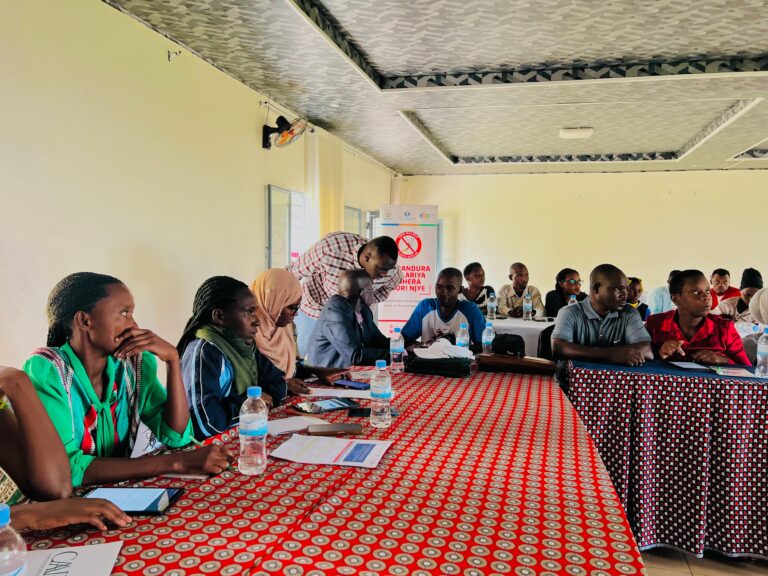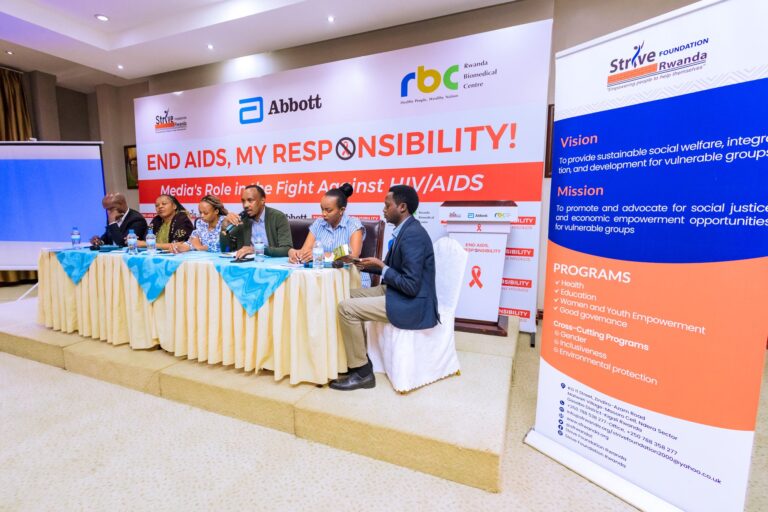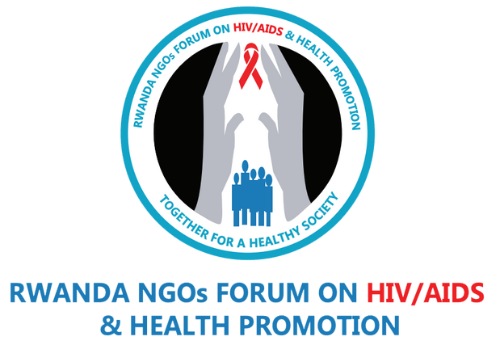
Program Overview
At the Rwanda NGOs Forum on HIV/AIDS and Health Promotion (RNGOF), we have been at the forefront of the national response to HIV/AIDS for over 15 years. As a network of 139 national NGOs, our collective efforts are focused on ensuring that communities affected by or vulnerable to HIV—especially Key and Vulnerable Populations (KVPs)—receive the services, support, and dignity they deserve.
What We Do
1. Community-Led Monitoring (CLM)
We empower communities, particularly those most affected by HIV—such as Female Sex Workers (FSWs), Men who have Sex with Men (MSM), Adolescent Girls and Young Women (AGYW), People Who Use Drugs (PWUD), Transgender individuals, Persons with Disabilities (PWDs), and People Living with HIV (PLHIV)—to monitor the quality and accessibility of HIV services. Through peer educators and local civil society organizations (CSOs/CLOs), we collect data, track challenges, and advocate for improvements in service delivery.
2. Advocacy for Policy and Legal Reform
RNGOF has played a pivotal role in decriminalizing sex work and MSM in Rwanda, contributing to the 2018 Penal Code reform. We use data and evidence gathered from CLM and programmatic reports to influence HIV-related policy, ensuring an enabling environment that protects human rights and promotes inclusive healthcare.
3. Strategic Planning and National Engagement
We actively participate in national platforms such as the HIV Prevention Technical Working Group (TWG), Care and Treatment TWG, and others. RNGOF has contributed to the development of Rwanda’s HIV National Strategic Plans (NSPs), condom strategies, and minimum service packages for key populations. Our coordination ensures that the voices of CSOs and KVPs are reflected in national priorities.
4. Capacity Building and Empowerment
We regularly train our member organizations and their peer educators in data collection, monitoring tools, human rights, gender approaches, and advocacy skills. These efforts strengthen grassroots capacity to deliver high-quality, rights-based HIV services and hold stakeholders accountable.
5. Multisectoral Collaboration
Our work goes beyond the health sector. We engage government ministries, development partners, district authorities, law enforcement, and the private sector to ensure a holistic approach to HIV prevention and care. We coordinate quarterly stakeholder meetings to address emerging issues and improve service uptake at all levels.


Our Impact
- Over 30,000 FSWs, 17,000 MSM, and 21,000 AGYW linked to HIV services through CSO outreach and coordination.
- Contributed to Rwanda’s significant progress toward UNAIDS 95-95-95 targets, with 98% of PLHIV knowing their status and 96% achieving viral suppression.
- Influenced the development of HIV-related strategic frameworks from 2013 to 2027.
- Supported the creation and dissemination of CLM tools for monitoring service quality and human rights compliance in HIV care.
Our Vision
We envision a Rwanda where every person—regardless of identity or status—has equitable access to HIV prevention, testing, treatment, and support. By placing communities at the center of our response, we are not just delivering services—we are transforming systems, challenging stigma, and building a future free of AIDS.
